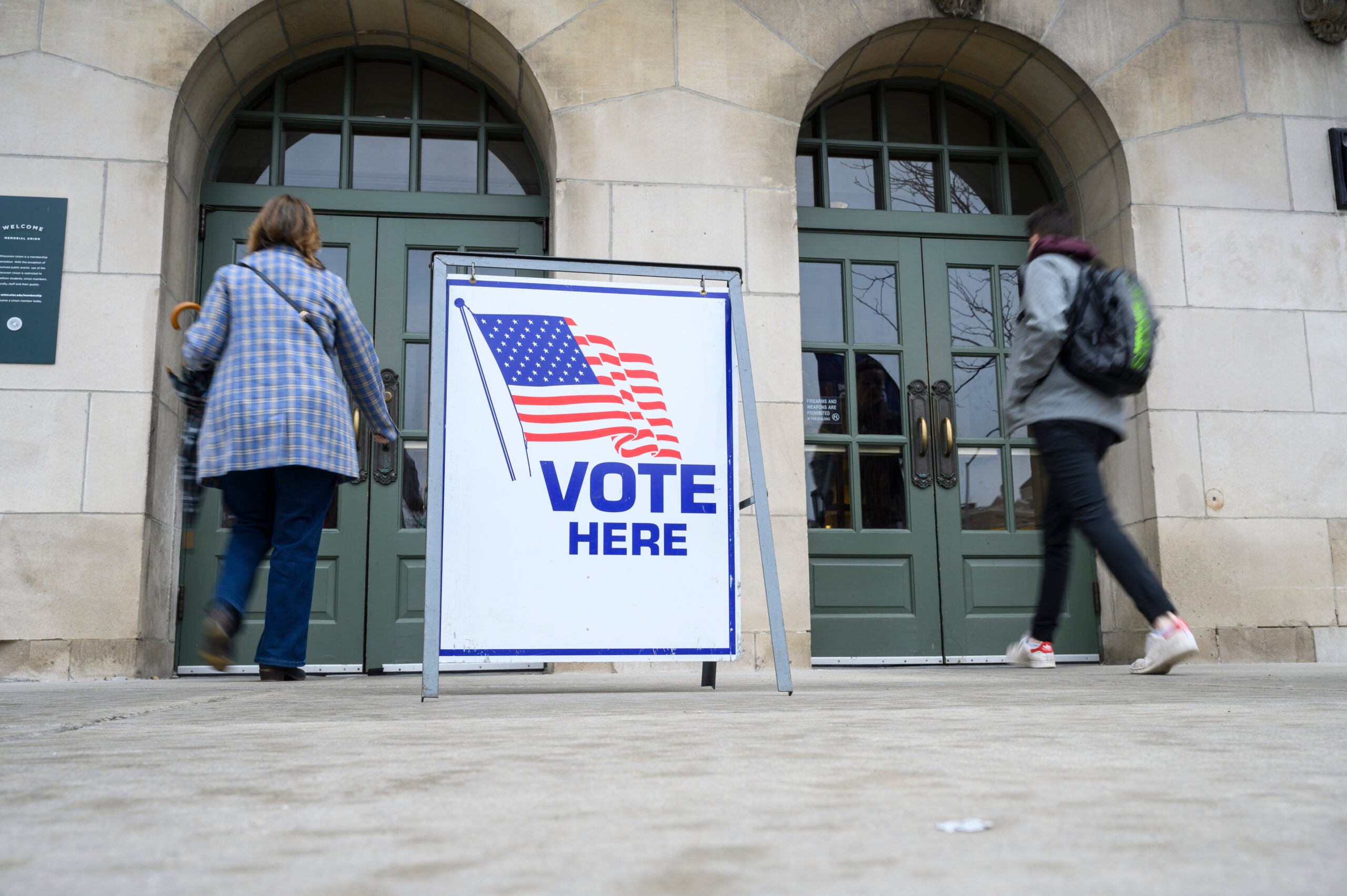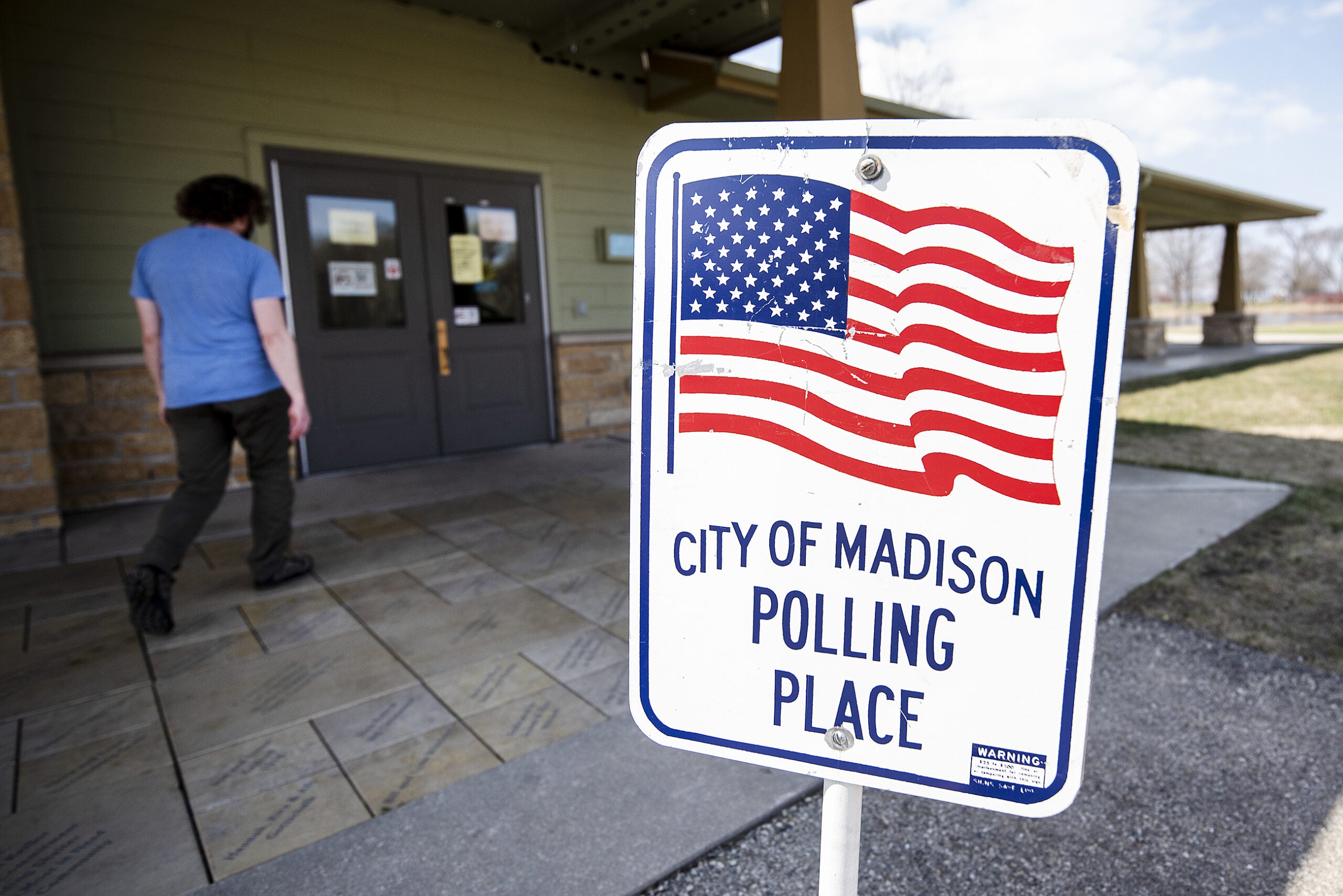The Wisconsin Elections Commission is once again asking to create an office tasked with ensuring transparency and accountability in elections.
The commission approved a budget request Wednesday with a 5-1 bipartisan vote. It includes close to $2 million over two years for an Office of Election Transparency and Compliance.
Duties of that 10-person office would include assisting with election audits and responding to questions from the public and the state Legislature. Staffers would also conduct research needed to respond to complaints and to public records requests.
News with a little more humanity
WPR’s “Wisconsin Today” newsletter keeps you connected to the state you love without feeling overwhelmed. No paywall. No agenda. No corporate filter.
At the commission’s behest, Democratic Gov. Tony Evers included a similar request in his most-recent budget proposal. But the Legislature’s Republican-controlled Joint Finance Committee removed that item from the two-year budget which took effect in July of last year.
Don Millis, a Republican member of the elections commission, said the goal of proposed office is increasing trust.
“To me, it doesn’t matter whether the concerns are really well-grounded in fact, or maybe only partially well-grounded in fact,” Millis said during the commission meeting Wednesday. “I think it’s incumbent upon the commission to to investigate, to make sure that we can prove beyond a shadow of a doubt that there are no problems.”
In recent years, Millis said the commission’s been “inundated” with requests from both the public and state Legislature. He and other commissioners said they hope that, by creating more dedicated staff positions, the WEC will be able to resolve such requests in a more timely manner.
“This proposal funds our responsiveness in a really positive way,” Democratic Commission Chair Ann Jacobs said. “(It) gives better customer service to those people who make open records requests or want their complaint heard within perhaps a month or two and not a year.”
Before 2020, Wisconsin’s elections agency received an average of 15 formal complaints each year. After 2020, that average surged to more than 50 complaints annually, according to data shared by WEC staff.
Republican former President Donald Trump has spread false claims about the 2020 election, and championed efforts to overturn those results in swing states including Wisconsin.
Democratic President Joe Biden won Wisconsin by more than 20,000 votes four years ago. Those results have been upheld by multiple state and federal courts, a statewide canvas and a partial recount.
Republican Bob Spindell was the lone commissioner to vote against the agency’s budget request.
The WEC’s request specifies that the Office of Election Transparency and Compliance would be led by a policy initiatives advisor, who would be hired by Wisconsin’s elections administrator.
During Wednesday’s meeting, however, Spindell suggested that such a structure could impede the office’s independence. Instead, he proposed having two attorneys lead the office — one appointed by the state Legislature’s top Republican and the other chosen by Wisconsin’s top Democratic lawmaker.
That system would ensure “both parties have the ability to have a view,” Spindell said.
But that would require a change to state law, Jacobs said.
Spindell said he was aware of that fact.
“The Legislature has been actually looking at something like this, and I think that’s something that needs to be done,” he said. “And, of course, we can make recommendations to the Legislature on anything we wish to do.”
Meagan Wolfe has served as Wisconsin’s elections administrator for the last six years, after being appointed by the commission in 2018. She’s been the target of false conspiracy theories about the 2020 election and some GOP lawmakers have called for her impeachment.
The Republican-controlled Senate voted in an attempt to fire Wolfe last year. That prompted Wisconsin’s Democratic attorney general to sue, arguing lawmakers lacked the authority to oust Wolfe. The suit asserted Wolfe could remain in her position even after her initial term expired because a majority of election commissioners hadn’t voted to remove or reappoint her.
A Dane County judge sided with Democrats, but Republican lawmakers appealed that ruling. On Wednesday, the Wisconsin Supreme Court agreed to take up the case directly.
In recent years, some Republicans have introduced legislation to abolish the elections commission.
The Wisconsin Elections Commission was established in 2016 under a law signed by Republican former Gov. Scott Walker. The commission replaced Wisconsin’s now-defunct Government Accountability Board.
The six-member elections commission is evenly divided between Republicans and Democrats. Two commissioners are appointed by the governor, and the rest are chosen by legislative leaders.
The agency’s budget request will be forwarded to Wisconsin’s Department of Administration for possible inclusion in an upcoming proposal from Evers.
Eventually, lawmakers will vote to approve or reject parts of Evers’ financial blueprint. Wisconsin’s next budget will cover a two-year period starting July 1, 2025.
Wisconsin Public Radio, © Copyright 2026, Board of Regents of the University of Wisconsin System and Wisconsin Educational Communications Board.





